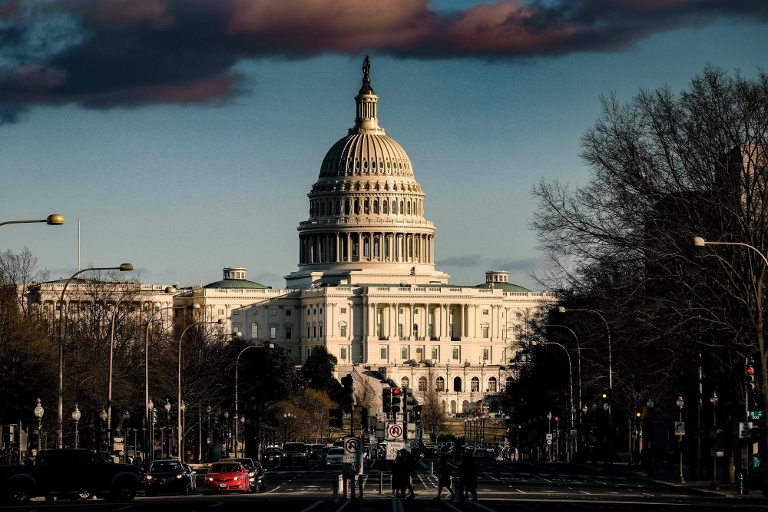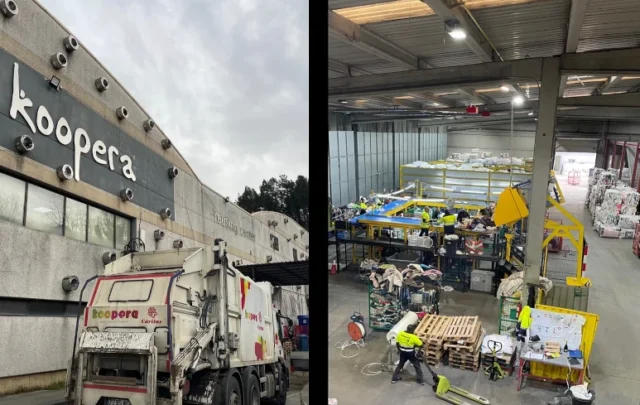The House and Senate are back in session this week after taking time off for Independence Day.
The clock starts ticking. The Environmental Protection Agency’s final rule replacing the Obama-era Clean Power Plan was published this morning, kicking off a 60-day window to bring lawsuits over the regulation – something multiple state attorneys general have said they will do. The Trump EPA seeks to justify its interpretation of the Clean Air Act as the only legal interpretation – a harder argument to win in court but one that, if successful, could prevent future administrations from implementing stricter regulations on power plants’ greenhouse gas emissions. (Daily Journal Federal Register)
Legal challenges to the Affordable Clean Energy Plan, Trump’s answer to the Clean Power Plan are some of the few things that can be counted on these days.
As important as the outcome of the challenges is, what judges and justices have to say about the legality of EPA regulating power plant emissions both inside and outside the fence line is perhaps more important.
It’s possible the courts could maintain the precedence of the landmark Massachusetts v EPA case in which the High Court said EPA would be obligated to regulate greenhouse gas emissions if it found them harmful to health, while at the same time ruling that the Clean Air Act doesn’t permit the Agency to regulate beyond the fence line.
The public is entitled. Senators, including Charles Grassley (R-Iowa) and Ed Markey (D-Mass.), are considering writing legislation to make federal records more accessible in response to the EPA and Interior Department’s recent changes to their Freedom of Information Act policies. Environmental groups oppose the agencies’ policy changes, which give the agencies more control over the fulfillment of records requests. (The Hill)
Something else the country doesn’t need. Billionaire activist Tom Steyer tells friends he plans to enter 2020 presidential race.
What seems to be motivating Steyer’s decision to jump into the race is his dissatisfaction with the way the current Democratic contenders are NOT focusing much on Trump’s impeachment. Over the past year or more Steyer has funded his Need to Impeach campaign.
Steyer has been a huge investor in climate defense matters and would add his voice to the current calls of Democratic contenders for an aggressive national climate defense plan.
Steyer’s active candidacy—in my opinion—hurts the Ds chances to win in 2020. His adamancy on impeachment will only serve to take away focus on climate and divide Democrats more than they are now on the issue. Between the two—climate defense is the most important. Beat Trump in 2020, and there’s no need for impeachment.
Read all about it. As Europe heats up, Greenland melts and the Midwest floods, many news organizations are devoting more resources to climate change as they cover the topic with more urgency.
Why produce more? The U.S. Environmental Protection Agency (EPA) has proposed refiners increase the volume of biofuels blended into their annual fuel output but did not reallocate the waived amounts under the hardship program, drawing ire from powerful corn and biofuel groups as well as Republican senators.
The Renewable Fuel Standard and the waiver program, known as the Small Refinery Exemption (SRE) program, have increasingly been at the forefront of a heated political debate between the influential corn and oil lobbies, leaving President Donald Trump struggling to find a balancing act between the two important constituencies as he eyes re-election next year. (Reuters)
Getting it is a problem. Earlier this year, two utilities that service the New York City area stopped accepting new natural-gas customers in two boroughs and several suburbs. Citing jammed supply lines running into the city on the coldest winter days, they said they couldn’t guarantee they’d be able to deliver gas to additional furnaces. (Wall Street Journal/paywall)
Where’s the bunny when you need him? The internet of things promises companies a way to monitor valuable equipment and machinery. However, when deployed in remote or hostile locations, it poses a challenge. How can you continually power the sensors that communicate mission-critical data on the condition and performance of isolated assets that are beyond the reach of the electricity grid? (Financial Times)
Rube Goldberg to the rescue. Even the best lithium-ion batteries stink at storing the large amounts of electricity a massive wind or solar installation is capable of generating. They’re expensive and hold, at most, about four hours’ worth of that grid-scale juice. (Bloomberg)
Following suit. Until now, buyers flocking to buy battery cars faced a spartan choice, with several Tesla models available alongside a handful from established manufacturers. However, every carmaker will issue multiple models across Europe, with the aim of stealing a march on the growing market and avoiding costly fines for missing tough new CO2 emissions rules. (Financial Times)
False advertising. Florida calls itself the Sunshine State. However, when it comes to the use of solar power, it trails 19 states, including not-so-sunny Massachusetts, New Jersey, New York, and Maryland. Solar experts and environmentalists blame the state’s utilities. (New York Times)
It was here a minute ago. In the last 100 years, the sea rose less than 9 inches in California. By the end of this century, the surge could be greater than 9 feet.
California is not alone when it comes to losing land to sea level rise. North Carolina, Florida, and Louisiana are among other coastal states being reclaimed by the seas. At some point, I expect a Congressional caucus and new lobbying group dedicated to land losses to be established—especially by representatives whose districts are melting away. They could call them the Sunken State Alliance and Washed-out Congressional District Caucus.
Money well spent? While several cities around the country have similar relocation projects to address increased flooding, disaster mitigation experts consider Nashville’s a model that other communities would be wise to learn from: The United States spends far more on helping people rebuild after disasters than preventing problems.
Growing our way out. Current pledges from governments represent only about half of what would be required to avoid a 2˚C temperature rise and just one-third of what’s required to limit warming to 1.5˚C.
While this “emissions gap” is significant, UN Environment suggests it can still be closed cost-effectively. One of the major contributors to closing the gap is forests.
The good news here is that 6.3 gigatons (billion tons) of carbon dioxide emission reductions have already been reported over the past six years from forests in Brazil, Ecuador, Malaysia and Colombia alone under the UN Framework Convention on Climate Change (UNFCCC), according to the UNFCCC Lima Hub. It is equivalent to more than the annual emissions of the United States.
The bad news here is governments in many countries are allowing forest lands to be cleared for cattle and other agricultural purposes. One of the biggest offenders is the government of Trump’s good populist buddy Jair Bolsonaro, whom the Guardian suggests is giving a free pass to illegal logging, farming, and mining.
Richer nations would be well advised to pay countries to refrain from cutting down their forests and replant what has already been lost and more—but not for nothing. In return for investment verification and enforcement mechanisms would need to be put in place.
Out of the many possibilities for keeping Earth’s warming below critical thresholds reforestation certainly offers one of the better, cheaper, and easier fixes.
Putting their money where their mouth is (NOT). Harvard says fighting climate change is a top priority. But it still won’t divest from the university’s $39 billion endowment of investments in fossil fuels.
Over the past six months, more than 300 Harvard faculty members have signed a petition calling for divestment of fossil fuel stocks. Students, before departing for the summer, held Heat Week to highlight climate change. Moreover, leading alumni — such as former U.S. Senator Timothy Wirth of Colorado, former vice president Al Gore and Stephen Heintz, president of the Rockefeller Brothers Fund — have written to Harvard President Lawrence Bacow urging the university to reverse its position.
The infrastructure alternative. Senate Environment and Public Works Committee lawmakers will turn their attention to infrastructure again this week, with legislation expected before the August recess.
The committee will hold a hearing Wednesday titled “Investing in America’s Surface Transportation Infrastructure: The Need for a Multi-Year Reauthorization Bill.”
Lawmakers will focus on the looming reauthorization of the Fixing America’s Surface Transportation (FAST) Act, which is set to expire in October 2020. (E&E News)
A much bigger bi-partisan infrastructure bill had been hoped for earlier this year, but Trump had a hissy fit when meeting with Democratic congressional leaders in May. He stormed out of the meeting, taking the hope of the bigger bill with him.
The perfect hosts. Committees in both the House and Senate are poised to review a host of energy bills this week.
A handful of power storage measures will get a Senate Energy and Natural Resources sub-committee legislative hearing this week featuring Department of Energy officials.
The hearing adds momentum to the bipartisan interest in bolstering the federal government’s research and development role in storage — dubbed the “holy grail” of energy by advocates and Energy Secretary Rick Perry.
Topping the agenda is S. 1602, from Sen. Susan Collins (R-Maine), to authorize some $300 million over the next five fiscal years into energy storage research.
The motivation, Collins has said, is to focus DOE efforts on bringing down the costs of the technology in a manner like the agency’s successful SunShot Initiative, which saw solar costs decrease by 75% over a decade.
“One of the biggest hurdles to commercializing energy storage is cost,” Collins said on the Senate floor while introducing her bill in May.
Also under consideration, a new bipartisan proposal, S. 2048, from Sens. Angus King (I-Maine) and Martha McSally (R-Ariz.), introduced just before last week’s recess.
The bill would direct DOE’s Advanced Research Projects Agency-Energy and the Department of Defense’s Environmental Security Technology Certification Program (ESTCP) to team up on demonstration projects for long-duration energy storage. The measure would authorize nearly $500 million over the next five years. (E&E News)
Almost a dozen other bills will be finding or have found their way into the hopper this week on a wide variety of topics.
Look for reports in coming Climate Politics newsletters as developments dictate.
What a load of carp. State wildlife officials say an Asian carp species that poses a serious threat to Indiana’s mussel populations is advancing closer to the state’s waterways. The Indiana Department of Natural Resources says two black carp were captured last month in the Ohio River about 10 miles downstream of Indiana’s state line.
Black carp are native to Asia and feed on mollusks. They pose a serious threat to Indiana’s native mussel species, many of which are listed as endangered or of special concern. (MSN)
Don’t bother to assure us. EPA is scrapping Obama-era plans to require electric power companies to post bonds or other financial assurances in case of an incident requiring cleanup under the Superfund law.
The agency said yesterday that after review of modern industry practices and existing state and federal regulations, the electric industry does not pose a great enough risk to warrant the mandate.
The facilities included in this week’s decision are electric power generation, transmission, and distribution facilities.
In its proposed rule, the agency said the government owns nine federal utilities that “present an extremely low risk of default on environmental liabilities.” “Publicly-owned utilities also present a low risk of bankruptcy due to detailed financial reporting requirements and government oversight,” EPA said.
Financial assurance requirements under the Superfund law are meant to protect taxpayers if contamination surfaces after a company has gone out of business. (E&E News)
Environmentalists scorned? Despite having endorsed the Green New Deal, some activists say Democratic 2020 candidate Kamala Harris risks blunting her rise in the polls after a strong performance in the first Democratic debate if she doesn’t soon propose her own policies to combat climate change. (Washington Examiner)
We don’t want your kind around here. The first three slides of climate scientist Peter Kalmus’s plenary speech to Shell’s Powering Progress Together conference were intended to gauge audience reactions. First, he would have asked attendees if they are “concerned about climate breakdown.” Then, to raise their hands if they are “EXTREMELY CONCERNED” about it. In the third slide, Kalmus would have asked panel-goers to raise their hands if they agreed with a simple statement: “Fossil fuel causes harm.”
He never got the chance. Kalmus was uninvited the day before he was to speak.
Mussel beach. You thought you were hot? Heatwave cooks mussels in their shells on California shore.
We’ll trade you. House Democrats say there’s little to no chance that Congress will take up President Trump’s replacement for the North American Free Trade Agreement (NAFTA) before the end of summer.
With only three more weeks scheduled to be in session before the August recess, House Democrats from across the spectrum are demanding the trade pact with Mexico and Canada be renegotiated, citing concerns with the implications for labor and environmental standards as well as drug prices. (The Hill)
USCMA trade agreement is going to become a bargaining chip for Democrats in Congress. Trump needs the new agreement so he can claim he keeps his promises. He’s called NAFTA the worst agreement in history and promised he could do much better. How much better USMCA is as either a trade agreement or an acronym is debatable.
For Speaker Pelosi and other Democratic House and Senate leaders the USMCA can show progressives irritated by their quick capitulation on the disaster bill that they are still tough negotiators when it comes to climate matters. A tough position on the USMCA also plays well with organized labor.
The down and dirty on carbon. There’s a new agricultural commodity that farmers, food giants, and grassroots groups are all rallying behind — carbon.
Proponents say that if the United States’ 20th-century success as a global agricultural power was measured by how much food came from American soil, the 21st century offers a new paradigm: measuring how much carbon dioxide American farmers can retain in the soil while still producing food.
[slide-anything id=’3472166′]
The two objectives are not mutually exclusive, according to farmers, scholars, and ag-focused nonprofits.
They are bound together in emerging farming approaches called “carbon farming,” “climate-smart farming” and “regenerative agriculture,” all of which place soil, water and climate health at the center of the agricultural enterprise.
According to EPA, soil management accounted for roughly half of the agriculture sector’s greenhouse gas budget in 2016, which reached 562.2 metric tons of CO2 equivalent, or 8.6% of all U.S. emissions. (E&E News)
Trash talk. Recycling is often cited as one of the easiest ways to make a difference to the environment. But does old plastic really get reprocessed into new? Guardian reporters around the world have been investigating what happens to our waste. (The Guardian)
A canary in the coal mine? According to a recent Washington Post/ABC poll, the top overall issues for Americans as the 2020 election nears are the economy, health care, and immigration. Foreign policy, gun violence, taxes, issues of special concern to women, and abortion follow behind. Climate change trails the others — but still, over half say it’s at least “very important.”
Republicans and Democrats diverge on which issues they would list as one of the single most important in influencing their vote. For example, 31 percent of Democrats cite health care as one of the single most important issues, compared with 9 percent of Republicans. Climate change is another example, with 27 percent of Democrats and 6 percent of Republicans calling it one of the single most important issues for 2020. On the economy, there is more agreement about its significance.
Although the survey was of a small sample, the low standing of climate should be of concern. The pattern is one we’ve seen in the past around election times when issues other than climate are of greater voter concern.
Although climate scored as very important with over half the respondents, the economy scored 82 percent, immigration 80 percent, foreign policy 72 percent.
These numbers need to be followed, along with the messaging of the Democrats.
A note to readers: If you find the Climate Politics/Capitol Light newsletters helpful, I would appreciate you letting friends and colleagues know about them and encouraging them to visit the Civil Notion website to view the issues. While they are there, they could sign-up for the newsletters and find them in their mailbox every time their posted.























